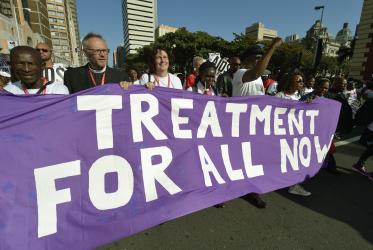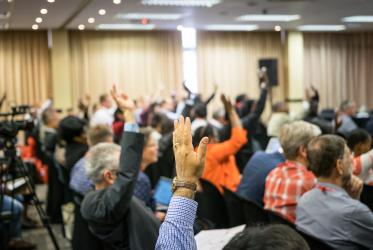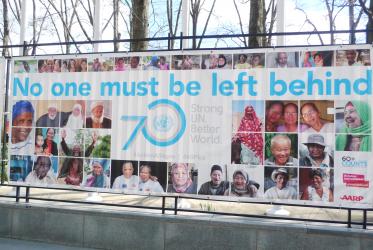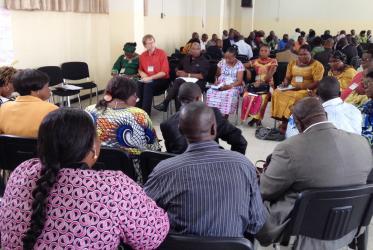Displaying 41 - 60 of 60
02 August 2018
Forum strengthens ecumenical commitment to diakonia
12 October 2017
Kenya: Voice of faith communities crucial in overcoming HIV
14 October 2016
Tveit offers input at religion and development meeting
03 October 2016
WCC/UN conference calls for coordinated action on refugee crisis
20 January 2016
WCC launches global ecumenical network for advocacy for just peace
09 December 2014
Sign early and save lives!
04 June 2013
IEPC youth essay contest: five winners
14 March 2011













